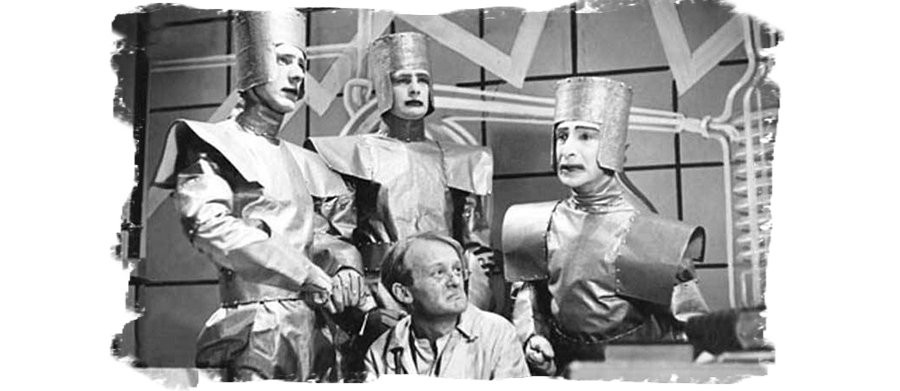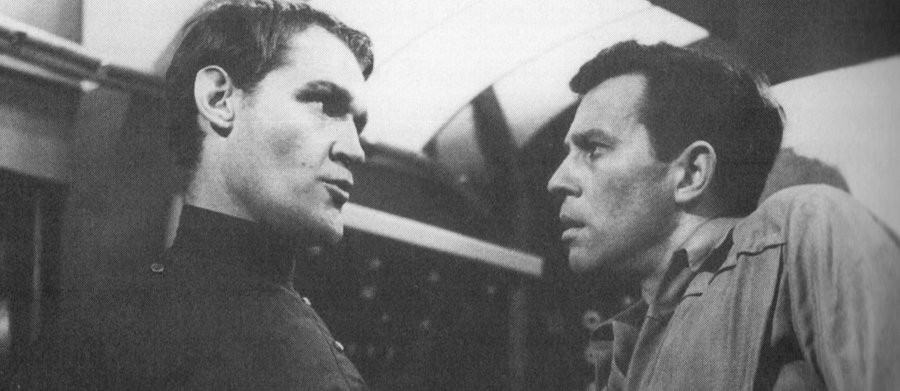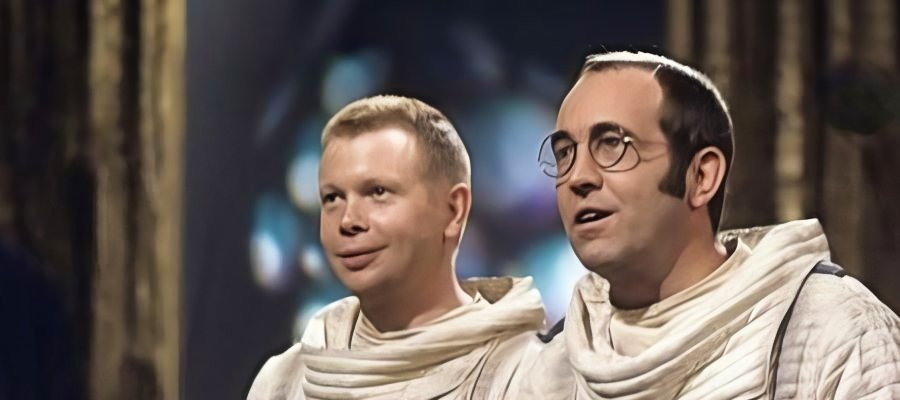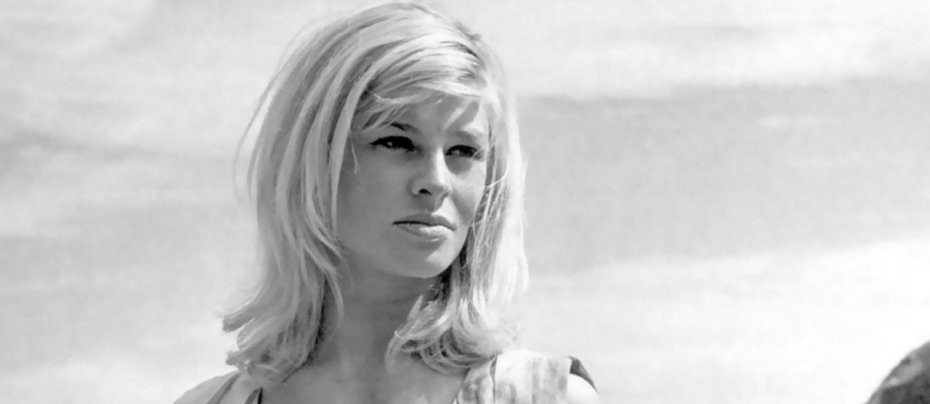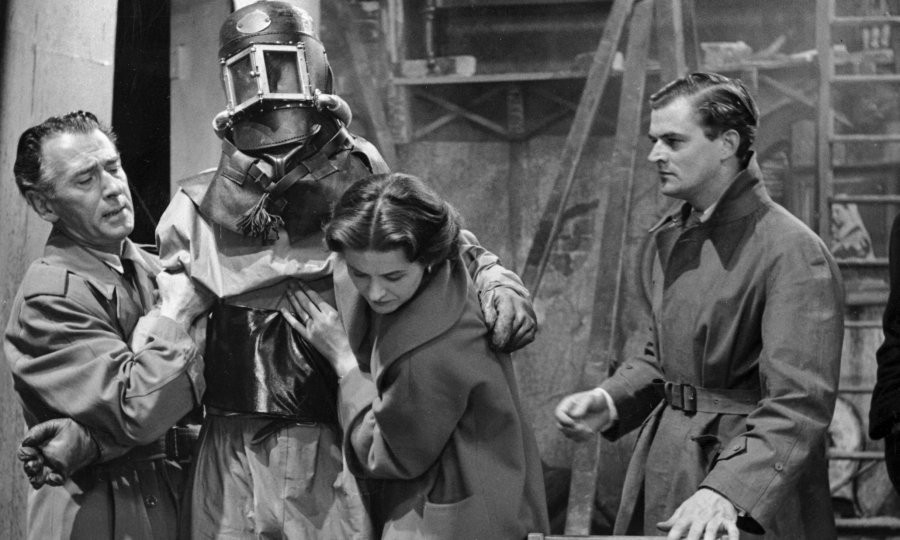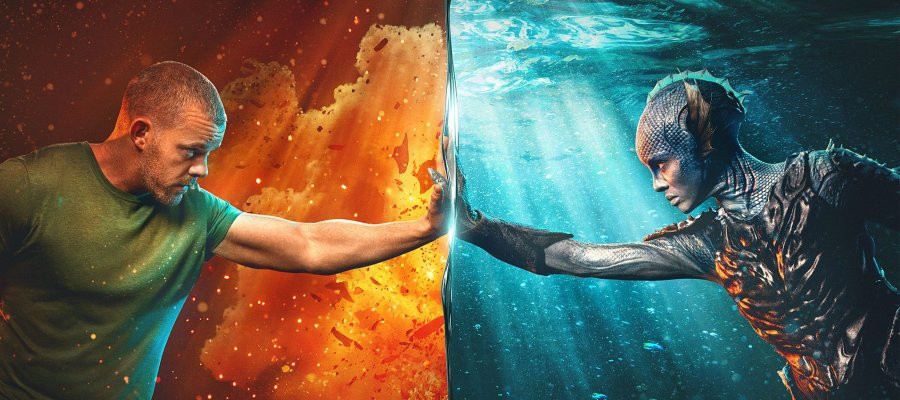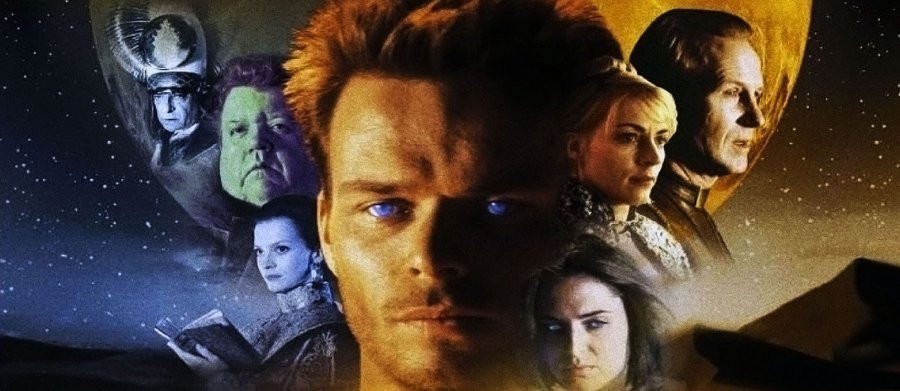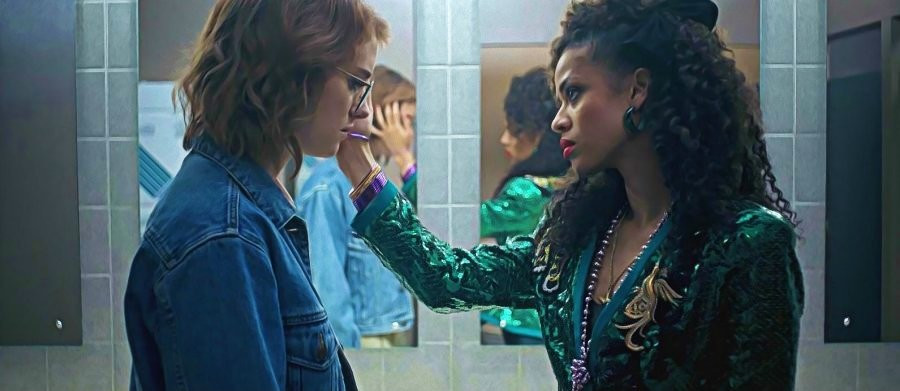
The Best of...Black Mirror - San Junipero
Black Mirror is brilliant, insightful, powerful and, most of the time, absolutely bloody miserable. Charlie Brooker created the series to explore humanity's relationship with technology, dealing with both technology's accelerating development and its infiltration of our lives. Brooker has stated that the series was inspired partly by The Twilight Zone, which utilised science fiction and fantasy settings to tell allegorical and critical stories about then-contemporary issues. This is the great strength of science fiction – as a means of exploring human stories through extrapolated or imaginary scenarios. The Twilight Zone, like other anthology series such as The Outer Limits, Out of the Unknown and One Step Beyond also have the benefit of providing new stories, week in, week out. This tradition is carried on by Black Mirror – if one week the show provides a bit of dud (I'm looking at you, The Waldo Moment), then rest assured the next one may be more to your liking.
Brooker's format isn't quite like the classic sci-fi anthology series. For one thing, the seasons are considerably shorter than the twenty-odd episode runs of The Twilight Zone. The first two series of Black Mirror, broadcast on Channel 4 in 2011 and 2013 respectively, had only three episodes each. This forced a certain level of quality, so that a poor episode would be a bigger deal than it would in a longer series. Nonetheless, it's the same approach: each episode has its own set-up, separate to the others. Each near-future (sometimes virtually contemporary) story stands alone, unconnected to the others. (Although cheeky Easter eggs and references in later episodes hint that at least some of them might take place in the same universe.) The huge critical and popular success of the first two series led to Netflix picking up the programme for a third series in 2016. With a bigger budget and some big name stars, this was an even bigger success. This series had six episodes, as did its follow-up, with a three episode fifth series arriving in 2019. (There have also been two specials – the 2014 Christmas special White Christmas, itself a portmanteau, and the 2018 interactive film Bandersnatch, which experimented with technology and media even as it explored it on screen.)
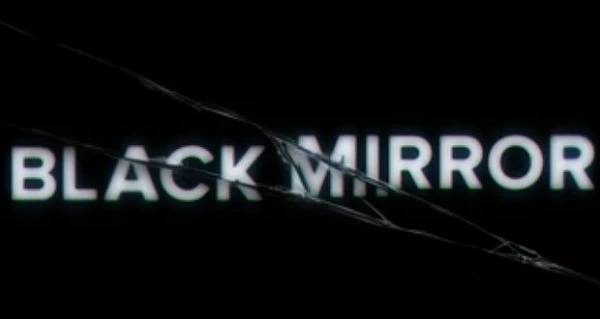
Having such short opening series led to a certain uniformity of style. Each episode was a distinctly pessimistic look at our social and technological future, and this inevitably gave the programme a rather depressing feel overall. The expansion of the third series and its American influence afforded the chance to play with the format a little more. While Brooker managed to keep the series feeling distinctly British even as episodes featured various American actors and settings, the series became a little sunnier, and while some episodes were still utterly bleak (such as the virtual reality nightmare of Playtest and the barely sci-fi but utterly draining Shut Up and Dance) others at least had a strong sense of humour to make them a bit more palatable (opening episode Nosedive with its concept of a world run by social media likes). It was a wise decision to break things up a little – a full six episodes of unending bleakness would be a bit much.

However, amongst the still rather depressing third series is an outlier, a single episode that throws the others into sharp relief and gives us, remarkably, a Black Mirror with a happy ending. The best you get from most episodes is a moment of catharsis at the end of the story, but episode four of the third series, San Junipero, is a genuinely uplifting story with a triumphant climax. It is, quite simply, a beautiful hour of television. A science fiction romance – that most difficult of genre mash-ups and atypical of Black Mirror – San Junipero begins in much the same way as every episode, with a new future setting that the viewer has to piece together as they go. The episode cleverly misdirects the viewer as it develops, with an ingenious twist halfway through that upends everything we thought was happening in the story. Unfortunately, there's no easy way to discuss the episode and its themes without revealing the twists of the story, so only continue reading if you don't mind this being given away.
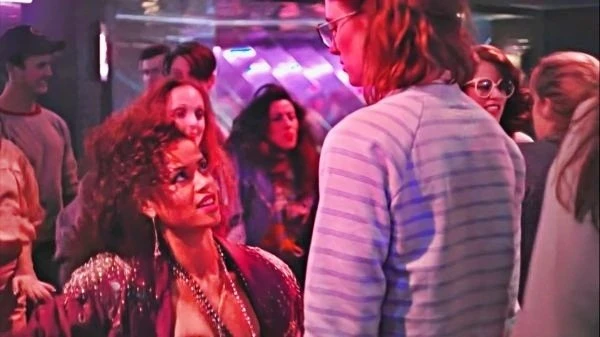
Unusually for the series, generally set five minutes into the future, San Junipero appears to begin in the 1980s. A shy young woman named Yorkie, played by Mackenzie Davis (Blade Runner 2049, Halt and Catch Fire, Terminator: Dark Fate) visits a nightclub, nervously exploring. There she meets Kelly, played by Gugu Mbatha-Raw (Belle, Undercover, Doctor Who). A confident party animal with a lust for life, Kelly dances with Yorkie and comes onto her, leading to Yorkie leaving in a panic. The week after, though, Yorkie returns, and she and Kelly end up spending the night together. Yorkie admits that this is her first time, but also explains that she's engaged, and her story is clearly missing some important details. Kelly admits that she was once married, but now she's just enjoying herself.

Already there are strange directorial choices that hint something isn't quite as it seems. People don't just leave, they're suddenly gone without any apparent time passing. Locations change abruptly. However, these could just be stylistic choices, nothing too unusual. When Yorkie goes back to the club the following week, there's no sign of Kelly, and eventually tries looking in a fetish club called the Quagmire. There, Wes (Gavin Stenhouse) another of her lovers, suggests Yorkie tries "a different time." Yorkie then proceeds to search for Kelly in the same club in several different decades, finally locating her in 2002. What's going on? Is this a time travel story? This is far beyond Black Mirror's usual look at speculative but feasible technology.
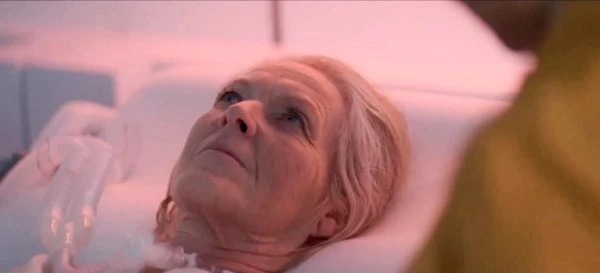
It eventually becomes clear that San Junipero is a simulation: a completely convincing virtual reality that the elderly, sick and infirm can visit once a week to relive their youth and experience an undiminished life. Those who are dying can elect to be transferred permanently there, effectively dying but being recreated in the simulation, a digital afterlife. Kelly is bitterly against this idea: she lost her husband and her daughter and neither are backed up in the simulation, but Yorkie seems convinced it's the only thing to live for. She doesn't want to stay there without Kelly though.
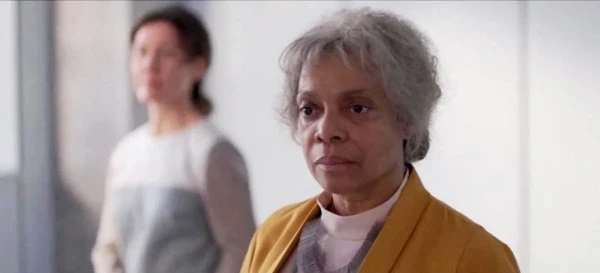
In the real world, the elder Kelly (played with poise by Denise Burse, Tyler Perry's House of Payne) tracks Yorkie down, in spite of Yorkie's insistence that she wouldn't like her in real life. It is revealed that Yorkie was paralysed in a car crash when she was only twenty-one, having fled from her strict Christian parents who reacted angrily to her coming out as gay. She has been in a vegetative state since then, only able to communicate via neural implants and now able to live something of a life in the simulation. Yorkie (Annabel Davis) is going to marry her nurse (the sweet-as-sugar Raymond McAnally) as this way he can override her family's refusal to allow her to euthanise. Following her into the simulation, Kelly proposes to Yorkie instead, and they are married on the other side, Yorkie finally dying to enter San Junipero permanently. On Kelly's next visit, Yorkie asks her to stay with her, leading to a vicious argument between them. In time, however, Kelly's love for Yorkie wins out, and she joyfully joins Yorkie in the afterlife for good.

While the synopsis makes it sound like a nice story, it can't provide a tenth of the impact of the production itself. Brooker's script is powerfully heartfelt, realised by astonishingly real performances by both Davis and Mbatha-Raw. Yorkie's fear, initially seeming to be simple shyness but in fact the result of a complete lack of life experience, is poignantly put across by Davis, gradually developing to greater confidence and true happiness. Mbatha-Raw is even better, her creation of Kelly's party animal façade hiding an incredibly hurt person who breaks through the cracks at sensitive moments. Most vitally, Kelly and Yorkie's love for each other seems entirely organic and real, in spite of the brief runtime.
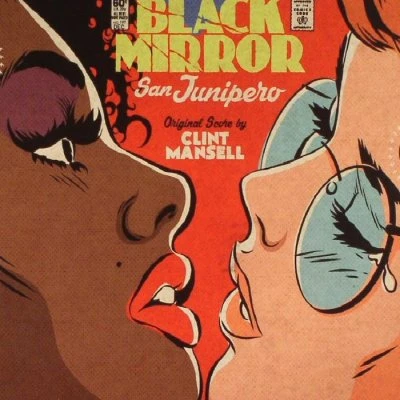
The direction by Owen Harris (The Secret Diary of a Call Girl, Misfits), combined with Gustav Danielsson's cinematography, make both San Junipero and the real California in which Yorkie resides real. Brooker's decision to fully embrace the American setting that was feared by so many British fans of the earlier series pays off, allowing a distinct and immersive sense of place both in and out of the simulation. There are early hints to the truth of Yorkie's story, such as a moment where Yorkie flinches at a driving game in the club's arcade. What really makes it sing, though, is the music. Clint Mansell (Black Swan, Moon, The Fountain) provides a haunting and cinematic score, that is both comforting and yet otherworldly, perfect for an artificial heaven. Into this is inserted carefully chosen eighties hits. One function of these, of course, is to sell the period setting of the simulation, but they serve to cleverly illustrate the themes, evoke the emotions, and hint at the truths of the story.

One such song is "Need You Tonight" by INXS. As well as perfectly evoking the eighties club scene, the lyrics are important. "All we've got is this moment/The twenty-first century's yesterday." The fleeting nature of the characters' visits to the simulation, and a hint at the story's true future setting, are held within those fleeting lyrics. Things are more blatant with The Smiths' "Girlfriend in a Coma," so on the nose it hurts. At both the episode's beginning, and more prominently it's triumphant end, we have Belinda Carlisle's "Heaven is a Place on Earth," quite simply the most perfect song that could be chosen. Brooker has said he would have been heartbroken if Netflix had been unable to clear the song. Nothing could possibly work as well played over the scenes of Kelly and Yorkie (having overcome her fear) driving into the distance, alternating with the image of thousands of personality discs being loaded into the simulation.
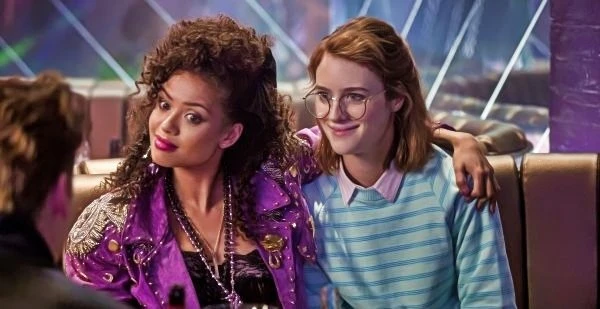
There is a gratifying subversion of common tropes in the episode. Yorkie's regular outfit is rather frumpy, but she doesn't change into anything more glamorous as her confidence increases; indeed, she tries on and discards several period-appropriate outfits before returning to her regular clothes. It's only when reunited with Kelly that she dresses up, and this is for the occasion, not as a signifier her personality has suddenly changed. Earlier versions of the script had focused on a heterosexual couple, but Brooker rewrote it as a same-sex couple to highlight how acceptance of such relationships has improved, with same-sex marriage being illegal in 1987. The story subverts the ubiquitous "kill your gays" approach to LGBT storytelling, something that is particularly common in fiction featuring lesbian couples. The inversion of the two women dying being a happy event is ingenious, pushing at long last that same-sex relationships don't need a tragedy as "punishment" in drama. Equally, making Kelly's character bisexual without any drama or concern for her preference by Yorkie is refreshing. while inspired by the development of nostalgia therapy for the elderly and those suffering from dementia, the script depicts elderly, even dying characters as full of vitality, rather than being packed away and forgotten about.
The episode itself is a perfectly contained story, but it hints at a larger, deeper world that is desperate to be explored. It would make an excellent film, of course, but even in such a truncated runtime it's structured beautifully, with the busier third act propelling the story to its conclusion. Fans have called for a sequel, and Brooker has admitted he's tempted, although he has said it would likely be in another format such as a graphic novel, rather than a follow-up episode. In many ways it seems prudent to leave it alone, allowing it to stand perfectly as it is, but there are still so many questions raised by the story. First and foremost the philosophical implications of transferring and reproducing human minds and memories, implications we may have to deal with in reality in the not-so-distant future, are fascinating, as are the impact such technology would have on religion, the grieving process and people's attitudes to life in general. Beyond these questions are those contained within the setting itself. We know nothing of the origins of the simulation, although my partner and I have a pet theory that the nervous, geeky fellow (played by Billy Griffin Jr.) who crops up several times in the club to unsuccessfully chat up Yorkie is San Junipero's secret architect.
All that aside, though, San Junipero is an utterly captivating love story that tears at your heart but leaves you feeling uplifted. Black Mirror would try something similar with the following season's Hang the DJ, but that episode uses the concepts for a very different and far less satisfying conclusion. Standing alone as the single truly happy ending in the series, San Junipero is quite simply one of the finest hours of television, science fiction or otherwise, in years.
Review: Daniel Tessier
Dan describes himself as a geek. Skinny white guy. Older than he looks. Younger than he feels. Reads, watches, plays and writes. Has been compared to the third, fourth, fifth, sixth, seventh, eighth, tenth, eleventh and twelfth Doctors, and the Dream Lord. Plus Dr. Smith from 'Lost in Space.' He has also had a short story published in Master Pieces: Misadventures in Space and Time a charity anthology about the renegade Time Lord.
Dan's web page can be here: Immaterial
Published on May 4th, 2021. Written by Daniel Tessier for Television Heaven.



